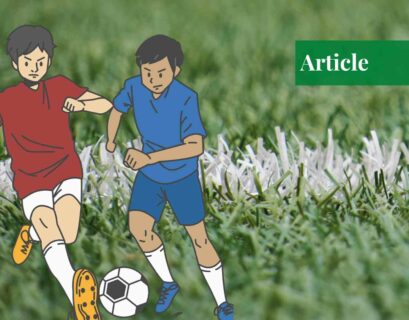Mr Hamid Amni is a Ph.D. student at UNC Greensboro, United States. He is also a seven-time Asian Kickboxing Champion and a world silver medalist.
Mixed martial arts (MMA) has overtaken the world, becoming one of the most physically demanding and popular sports, with its roots in traditional martial arts such as karate, judo, kickboxing, wrestling, and jiujitsu. As a result, it has evolved into a complex and physically demanding sport requiring skill-related physical fitness components such as speed, agility, balance, coordination, power, reaction time, and balance.
Additionally, MMA needs health-related physical fitness components such as cardiovascular endurance, muscular endurance, flexibility, body composition, and muscular strength. As with any high-performance sport, MMA athletes constantly look for ways to increase their performance and reduce their risk of injury.
One issue that has been the source of much debate and controversy in the world of MMA is the use of marijuana by fighters. The topic of marijuana use among athletes and MMA fighters continues to be hot, demanding, and controversial. There is a growing interest in the advantages and disadvantages of using marijuana.
Many believe that marijuana impairs athletic performance. However, the use of marijuana is still banned by the World Anti-Doping Agency (WADA) and other sports authorities, defining it as a performance-enhancing substance. Consequently, the use of marijuana can affect disciplinary action or suspension for athletes who test positive for it, which is a career-destroying penalty.
The demand for information on this topic has led to increased research and discussions surrounding the use of marijuana in sports. Some fighters may consume marijuana as a recreational substance, while others use it for medical purposes such as pain management. Note that the effects of marijuana on each person can be different. Factors such as genetics, frequency and amount of use, method of consumption, and individual tolerance levels can all impact the effects of marijuana on a person.
Additionally, the specific sport that athlete participates in and their training and nutritional practices can also affect the impact of marijuana on their athletic performance.
The Pros
Pain Management
One of the main arguments favoring marijuana use by MMA fighters is its ability to alleviate pain and anxiety. A study found that patients who used marijuana to manage chronic pain reported significant reductions in pain, improved sleep, and decreased use of other pain medications. Traditional pain management drugs, such as opioids, have a well-known list of side effects.
Studies show that marijuana can modulate pain signaling pathways by inhibiting the release of pro-inflammatory cytokines and reducing sensitivity to pain in the central nervous system. This can benefit fighters who experience pain due to injuries resulting from devastating strikes in an MMA fight or during training.
Improved Sleep
Studies show that marijuana use can increase the amount of slow-wave (deep) sleep, which is essential for physical and mental recovery. Additionally, marijuana may regulate the circadian rhythm, the body’s internal clock regulating the sleep-wake cycle.
Also, Borison found that low doses of THC can help reduce stress and improve mood, leading to improved performance in high-pressure situations. As an athlete who devoted his life to kickboxing for more than 20 years, I’ve experienced the fight nights of difficulty sleeping due to pain, fatigue, or anxiety.
Reduced Anxiety
Research shows that marijuana can help reduce stress and could benefit MMA fighters who experience pre-competition anxiety. Studies show that marijuana usage can increase levels of the neurotransmitter dopamine in the brain, which is associated with senses of delight and reward. Additionally, THC may bind to specific receptors in the brain, leading to an increase in GABA, a neurotransmitter associated with reducing anxiety.
However, marijuana use can cause or worsen anxiety symptoms in some individuals. Being nervous and stressed before competition is a typical feeling that most athletes experience in different sports. However, studies by Hackett and Petrie (2004) and Smith et al. (2015) indicated that anxiety and stress levels in combat sports, such as MMA and boxing, can be higher than in other sports. This is due to the nature of combat sports, which involves physical and psychological stressors, such as fear of injury, the pressure to perform, and the need to control emotions in high-tension situations.
Further, some athletes have reported that marijuana use has helped them to perform at their best by reducing anxiety and stress (Green, 2019). Also, Russo’s study (2020) found that low to moderate doses of THC (the active ingredient in marijuana) can increase focus, leading to improved athletic performance. It is essential to note that some studies show that marijuana has some potential advantages. Still, more research is needed to understand its mechanisms and determine its effectiveness fully.
The Cons
Impairment of Cognitive Function
Many pieces of research show that marijuana impairs cognitive function, including reaction time, memory, attention, and executive functions (such as problem-solving and decision-making). These cognitive functions are crucial for an MMA fighter to be successful in competition. THC reduces blood flow to the brain, especially in regions associated with memory and learning, which may contribute to the mentioned effects.
Increased Risk of Injury
Studies show that marijuana consumption is associated with an increased risk of injury due to impaired reaction time, balance, and coordination. Impaired cognitive function resulting from marijuana consumption can lead to decreased perception of pain, reduced ability to make decisions, and reduced ability to perform complex tasks, which can also increase the risk of injury.
Increased Risk of Cardiac Events
Based on CDC’s report, marijuana use makes the heart beat faster and increases blood pressure. It could also lead to an increased risk of stroke, heart disease, and other vascular diseases, especially in older adults or those with cardiovascular risk factors. THC can be the reason for an increase in heart rate, which can last for several hours after use. In addition, marijuana use is connected with arterial stiffness, leading to the risk of stroke and heart disease (Amar, 2006).
Decreased Endurance
Studies show that marijuana use decreases endurance and physical performance in athletes, which could negatively impact MMA performance. The mechanism by which marijuana may reduce endurance is related to its impacts on the CNS and cardiovascular system. THC can reduce motivation, decrease physical activity, and impair motor coordination, leading to decreased athletic performance and endurance.
Additionally, marijuana use affects the cardiovascular system, increasing heart rate and reducing blood pressure, which can contribute to reduced endurance. In addition to its impact on reaction times and motor skills, some experts argue that marijuana use can hurt an athlete’s motivation and focus (Carroll, 2020). This can be particularly problematic in high-pressure situations, such as a championship fight, where an athlete’s motivation and focus are critical to success.
Further, a study (Bilgen, 2019) found that regular marijuana use can lead to decreased lung function and poor endurance, damaging athletic performance. As I mentioned earlier, the impact of marijuana can be different for each person.
Legal and Ethical Implications of Marijuana Use in MMA
In addition to the potential physical risks, there are also legal and ethical implications regarding marijuana use by MMA fighters. Many organizations, such as WADA, consider marijuana a banned substance and test for it in competition. MMA fighters who use marijuana could face suspension or other penalties. Furthermore, marijuana is still illegal in many countries worldwide, with similarly strict regulations on its use. This has led some MMA fighters to call for a change in the rules, arguing that marijuana should be treated like any other substance used for medicinal purposes.
However, others argue that marijuana use in the MMA world sends a negative message to young people and the wrong message about drug use in general. Nate Diaz, a famous MMA fighter, has been a vocal advocate for marijuana use in the sport and has been known to use it during fights to manage pain and reduce anxiety. Former UFC Lightweight Champion BJ Penn has also been open about his use of marijuana, stating that it helps him manage pain and sleep better.
MMA Organizations’ Approach to Marijuana Use
Major MMA organizations have taken different approaches to the consumption of marijuana by fighters. WADA prohibits marijuana in competition, and many MMA organizations follow WADA’s rules. As a result, MMA fighters who test positive for marijuana can face penalties, such as fines and suspensions, and damage to their reputation and athletic careers.
The most prominent organizations, like UFC and Bellator, have adopted more lenient policies towards marijuana use outside competition, recognizing the potential benefits for pain management, sleep improvement, and anxiety reduction. UFC and Bellator may allow the use of marijuana for medical purposes. However, these organizations may still require fighters to undergo regular drug testing.
It is important to note that the approach of MMA organizations to marijuana use is subject to change as new research and legislation emerge and may vary from country to country. In conclusion, marijuana may have potential benefits for MMA fighters. However, it is essential to consider the potential drawbacks and risks, including performance impairment, health risks, and legal consequences.
If you want to submit your articles, research papers, and book reviews, please check the Submissions page.
The views and opinions expressed in this article/paper are the author’s own and do not necessarily reflect the editorial position of Paradigm Shift.


















